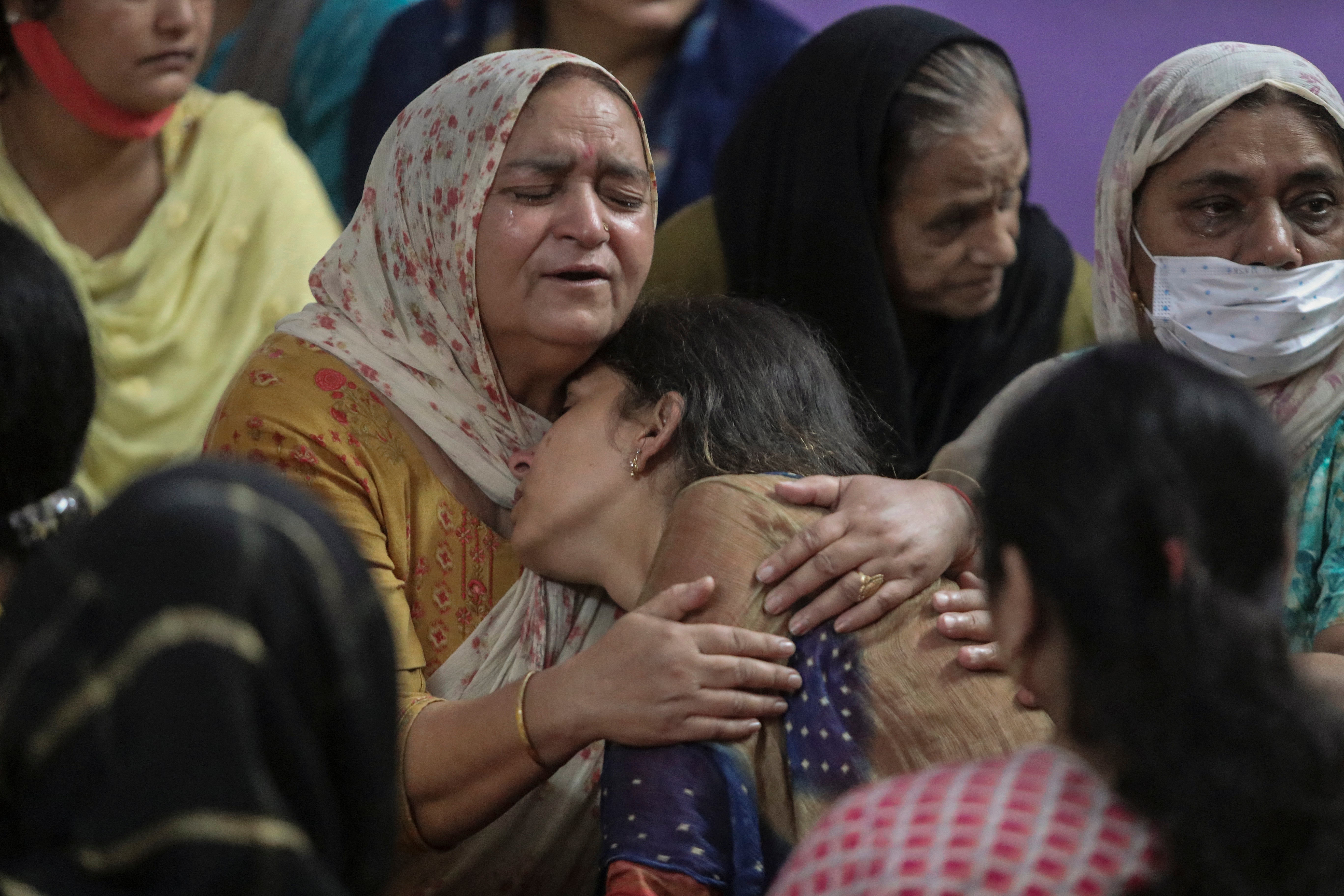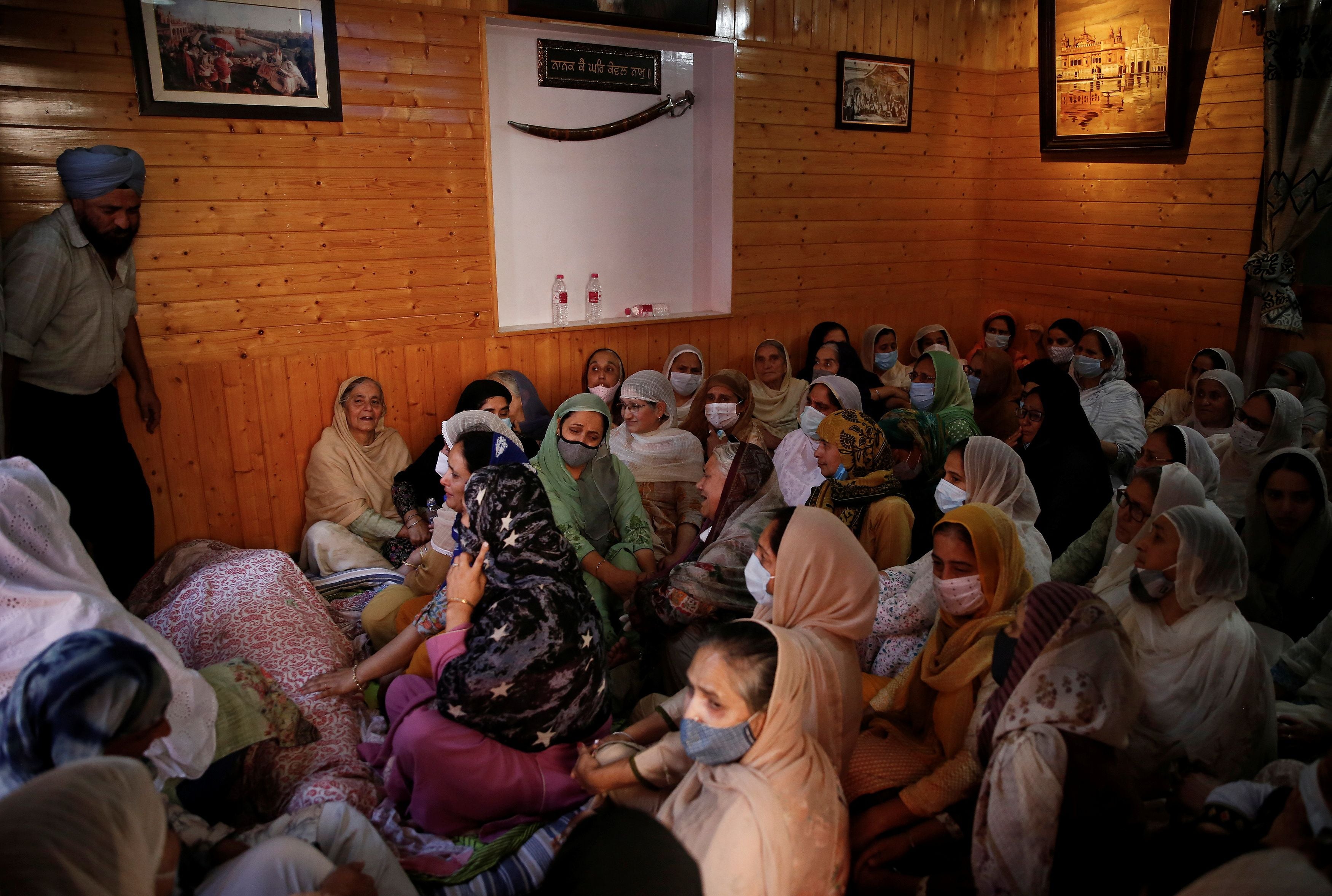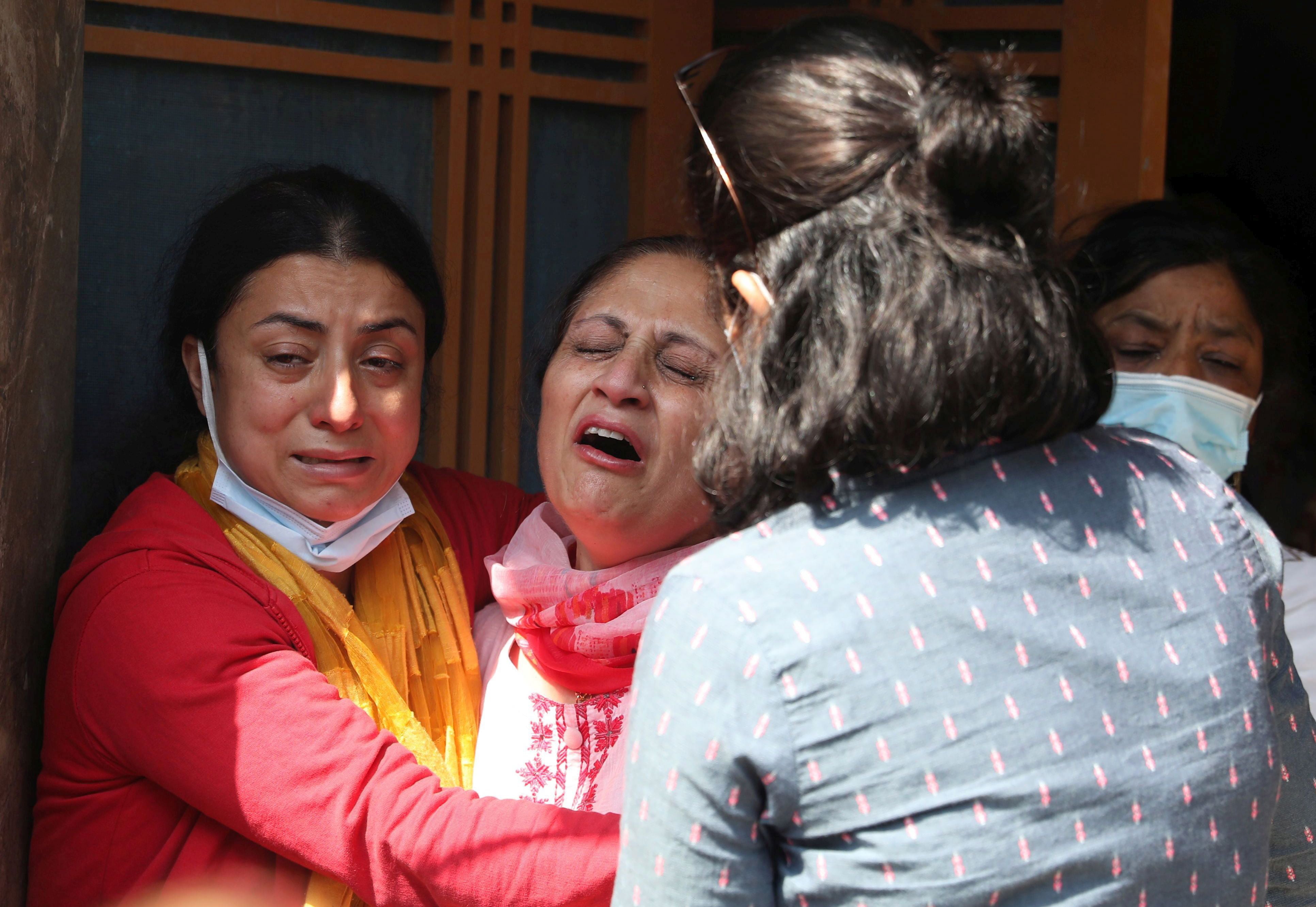Seven civilians dead in a single week as India’s Kashmir sees sudden flare-up in targeted killings
The Resistance Front, an outfit believed to be affiliated with Lashkar-e-Taiba, claimed responsibility for some of the recent killings

Your support helps us to tell the story
From reproductive rights to climate change to Big Tech, The Independent is on the ground when the story is developing. Whether it's investigating the financials of Elon Musk's pro-Trump PAC or producing our latest documentary, 'The A Word', which shines a light on the American women fighting for reproductive rights, we know how important it is to parse out the facts from the messaging.
At such a critical moment in US history, we need reporters on the ground. Your donation allows us to keep sending journalists to speak to both sides of the story.
The Independent is trusted by Americans across the entire political spectrum. And unlike many other quality news outlets, we choose not to lock Americans out of our reporting and analysis with paywalls. We believe quality journalism should be available to everyone, paid for by those who can afford it.
Your support makes all the difference.A sudden flare-up in the targeted killing of civilians has sparked fresh concerns of instability in India’s already restive in Jammu and Kashmir. Seven civilians were shot dead, most at point-blank range, in just the last six days.
On Thursday, two government school teachers were shot dead inside the school premises. Earlier this week - on Tuesday - three more civilians were shot. A further two civilians were killed last week.
Armed assailants stormed into the Government Boys Higher Secondary School in Srinagar on Thursday. They asked for the identity cards of the teachers before opening fire on them, an eyewitness said.
Dilbag Singh, Director General of Police in Jammu and Kashmir, said these killings were an attempt to defame local Muslims. “Killing innocent civilians, including teachers, is a move to attack and damage the age-old tradition of communal harmony and brotherhood in Kashmir,” Mr Singh said, during a visit to the school on Thursday. “The police have got some clues and leads about the killers in the previous cases. Police will nab the killers very soon.”
In the shootings on Tuesday, three people were killed in the span of just a few hours, also in Srinagar. The targets were identified as a taxi driver, identified as a taxi driver, a street food vendor and well-known chemist Makhan Lal Bindroo. Mr Bindroo was a Kashmiri Hindu.
Jammu and Kashmir, which is believed to be the world’s most militarised zone, has witnessed numerous sporadic incidents of militant attacks on security forces since the 1990s. The region is at the heart of a decades-old dispute between India and Pakistan. Both countries claim Jammu and Kashmir as theirs, but control only parts of it.
The region was India’s only Muslim-majority state until prime minister Narendra Modi’s government split it into two federally-administered territories in August 2019 and revoked its semi-autonomous status.

Siddiq Wahid, a historian and former vice-chancellor of Islamic University, told The Independent that there have been massive political changes in Kashmir since India changed its status and attributed these killings to “fear and frustrations” among Kashmiris.
“There are also apprehensions among people within Kashmir that it is to create a scenario of instability in Kashmir and it could be either party. At the end of the day, it is the people of Kashmir who are suffering the consequences,” he said suggesting that these murders were politically motivated.
The Resistance Front, an outfit believed to be affiliated with Pakistan-based terrorist organisation Lashkar-e-Taiba, claimed responsibility for some of the recent killings.
The Independent was not able to confirm the veracity of these claims.
“The Shaheed Gazi Squad carried out the targeted attack on two non-locals who were domicile holders and had harassed the parents of the students to salute the occupier’s [India] flag on August 15,” a TRF spokesperson said in a purported statement.
According to government data, so far this year, more civilians have been killed than security forces in terrorist activities, reversing the region’s six-year-old trend. So far, 25 civilians have been killed in Kashmir Valley this year, compared to 20 security personnel during the same period. In 2020, however, 33 civilians and 47 security forces personnel died in terrorist activities in Jammu and Kashmir.

Gowhar Geelani, a Kashmir-based author and journalist, said the attacks raised questions about the “narrative of normalcy” in Jammu and Kashmir by Mr Modi’s Bharatiya Janata Party government following the abrogation of the erstwhile state’s special status in 2019.
“These attacks have happened in broad daylight and in the heart of the city, which is very unfortunate, but it raises questions on the attempt to show normalcy in the Valley, and how attacks were carried out despite heavy security,” he said. “I believe these attacks have been designed to attack cultural confluence of the region and interfere in the multicultural setting with the aim to create communal disharmony between Sikhs, Hindus and Muslims.”
Observers underscored that targeted killings in Kashmir are not new. Previously, members of political parties, including regional parties such as the Jammu and Kashmir Peoples Democratic Party and the Jammu & Kashmir National Conference, have been targeted.
The latest killings have been widely condemned by both local Kashmiri leaders and political leaders across India.
Jammu and Kashmir unit BJP president Ravinder Raina called it a dastardly and barbaric act of terrorism and blamed Pakistani terrorists for the killings. “This is shocking. Pakistan is fully involved in a bloodbath in Kashmir and wants the people of Kashmir to bleed out. The terrorists asked the Muslim teachers to get on the one side and pinpoint targeted the two non-Muslims. It is condemnable,” Mr Raina told The Independent.
He added that 24 local BJP workers have been killed in such targeted killings in the last three years.
Peoples Democratic Party president and former chief minister of the region Mehbooba Mufti condemned the killings, accusing the Indian government of turning Kashmir into a “hellhole.”
"Disturbing to see the deteriorating situation in Kashmir where a minuscule minority is the latest target. (Government of India) GOI’s claims of building a Naya [new] Kashmir has actually turned it into a hellhole. It’s sole interest is to use Kashmir as a milk cow for its electoral interests,” she said.
National Conference vice president Omar Abdullah described the killings as shocking and said: “Words of condemnation are not enough for this inhuman act of terror but I pray for the souls of the deceased to rest in peace.”
Join our commenting forum
Join thought-provoking conversations, follow other Independent readers and see their replies
Comments